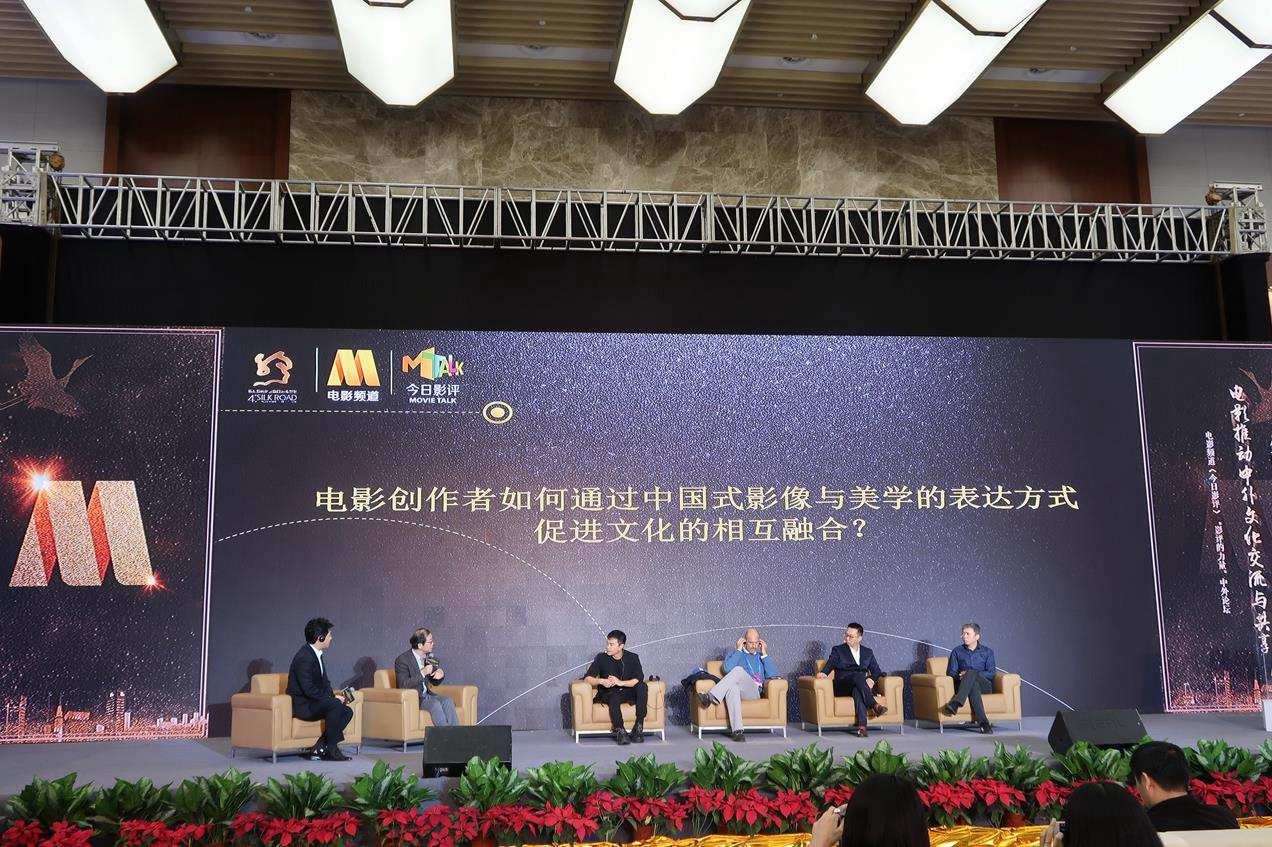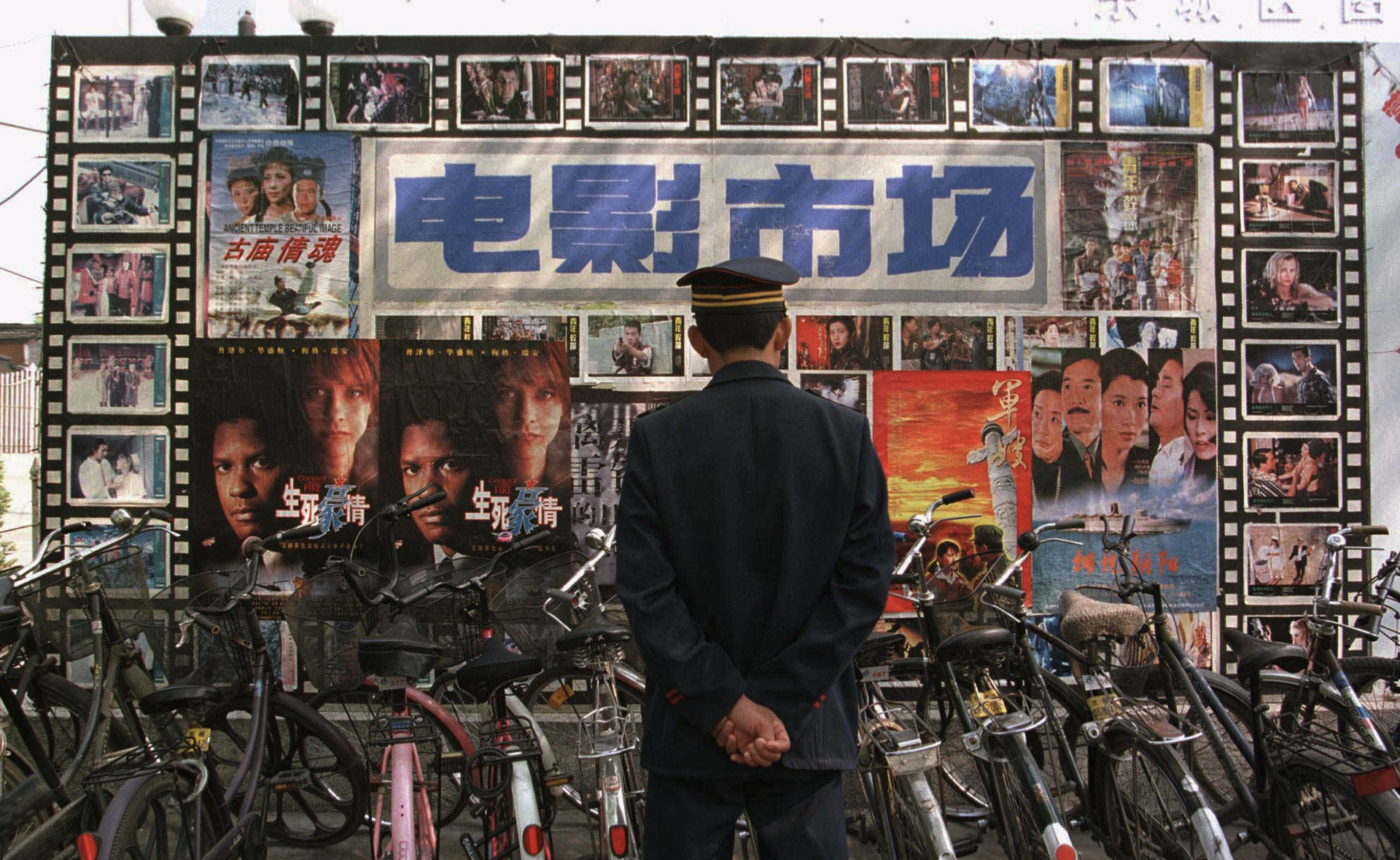A Guide to Understanding the Role of Movies in Cultural Exchange
Unlock the World's Cultures ?? - Your Passport to Global Cinema! Explore Cultural Exchange through Movies. Discover now

The Crucial Role of Cinema in Promoting Cross-Cultural Exchange and Mutual Understanding
Movies have long been a powerful medium for storytelling and artistic expression. Beyond their entertainment value, films have played a significant role in fostering cultural exchange and?promoting mutual understanding?among people from diverse backgrounds. In this essay, we will explore how movies act as a bridge between cultures, transcending language barriers, and facilitating empathy and comprehension.
Cultural Representation in Cinema
One of the most fundamental ways in which movies contribute to cultural exchange is by representing diverse cultures on the screen. Filmmakers often draw from the rich tapestry of human culture to create stories that resonate with audiences worldwide. Whether it's a Bollywood musical, a Japanese anime, or a Hollywood blockbuster, films introduce viewers to different customs, traditions, and ways of life. This exposure can pique curiosity and encourage viewers to learn more about the cultures they encounter on screen.
Language as a Barrier Breaker
Movies are a universal language that transcends geographical boundaries. While language is often considered a significant barrier to cross-cultural communication, films use the power of visual storytelling to convey emotions, ideas, and narratives. Subtitles and dubbing make it possible for people from different linguistic backgrounds to enjoy movies from around the world. In doing so, movies facilitate cross-cultural communication and understanding in a way that few other mediums can.
Empathy and Perspective-Taking
Cinema has a unique ability to evoke empathy and encourage perspective-taking. When audiences watch characters from different cultures facing challenges, experiencing joy, or enduring hardships, they can relate to the universal human experiences depicted on screen. This shared emotional connection allows viewers to step into the shoes of people from different cultural backgrounds, fostering empathy and understanding.
Challenging Stereotypes and Biases
Movies can challenge stereotypes and biases that people may hold about other cultures. By portraying complex and multidimensional characters from various backgrounds, films humanize individuals who might otherwise be reduced to stereotypes or caricatures. This can lead to a more nuanced and accurate understanding of different cultures, breaking down preconceived notions and prejudices.
Cross-Cultural Collaborations in Filmmaking
The global nature of the film industry often involves cross-cultural collaborations in the creation of movies. Co-productions between countries and international casts and crews are common in modern cinema. These collaborations not only result in more diverse stories but also?promote cultural?exchange behind the scenes. Filmmakers and artists from different cultural backgrounds come together to share their experiences and perspectives, enriching the creative process.
Film Festivals and Cultural Diplomacy
Film festivals serve as platforms for promoting cultural exchange and diplomacy. These events showcase movies from around the world, allowing audiences to explore diverse cultures through cinema. Additionally, film festivals often feature discussions, workshops, and cultural events that facilitate dialogue between filmmakers and viewers. Such interactions can lead to a deeper appreciation of other cultures and foster connections between people from different backgrounds.
Cultural Preservation and Revival
Movies can also contribute to the preservation and revival of cultural traditions and languages. In some cases, films serve as historical records of cultures that may be at risk of fading away. Documentaries, in particular, have played a crucial role in documenting and preserving cultural heritage. Moreover, by showcasing traditional practices and languages, films can inspire efforts to revive and celebrate cultural traditions.
Globalization and Homogenization
While movies can promote cultural exchange, it's important to acknowledge that the film industry, particularly Hollywood, has been criticized for promoting a form of cultural homogenization. Hollywood's dominance in the global film market has led to the spread of Western cultural norms and values. This can sometimes overshadow the representation of local cultures in cinema. However, the industry is evolving, with more emphasis on diversity and inclusivity in recent years.
Challenges and Controversies
Cinema's role in fostering cultural exchange is not without its challenges and controversies. Depictions of cultures in movies can sometimes be inaccurate or perpetuate stereotypes. Additionally, cultural appropriation in filmmaking has been a subject of debate. Filmmakers must navigate these complexities responsibly to ensure that movies genuinely contribute to mutual understanding.
Education and Cultural Awareness
Movies also serve as educational tools that can enhance cultural awareness and understanding. Educational institutions around the world use films as a means to introduce students to different cultures and societies. By watching movies that depict various aspects of foreign cultures, students can gain valuable insights into the customs, traditions, and history of those cultures. This exposure helps students develop a more informed and open-minded perspective, contributing to their cultural literacy.
Cultural Tourism and Cinematic Destinations
The influence of movies extends beyond the screen and into the realm of tourism. Filmmakers often select picturesque locations for their movies, showcasing the beauty and uniqueness of different regions. These cinematic destinations can become significant attractions for tourists, driving cultural exchange by encouraging people to visit and explore places they've seen in films. Famous examples include New Zealand's landscapes featured in "The Lord of the Rings" series and the bustling streets of Marrakech seen in?"The Bourne Ultimatum."
The Power of Documentaries
Documentary films, in particular, have a profound impact on promoting cultural exchange and understanding. Documentaries delve deep into various aspects of society, shedding light on important issues and showcasing the lives of people from diverse backgrounds. Whether it's a documentary about environmental conservation, a cultural celebration, or a historical event, these films can inform and inspire viewers to engage with and better understand the world around them.
Film as a Catalyst for Social Change
Movies have the power to provoke conversations about pressing social and cultural issues. Films that address topics such as racism, discrimination, gender equality, and social justice can serve as catalysts for change. They can inspire individuals and communities to take action, advocate for positive transformation, and promote cultural understanding by highlighting the shared struggles of humanity.
Social Media and Online Communities
In the digital age, movies are not confined to traditional cinema screens. The internet and social media platforms have become essential tools for sharing and discussing films. Online communities and forums provide spaces for people from different backgrounds to come together and exchange views and opinions about movies. This online discourse can lead to a deeper appreciation of diverse perspectives and cultures.
The Role of Film Institutions and Organizations
Various film institutions and organizations actively promote cultural exchange through cinema. The United Nations, for example, has recognized the power of movies as a medium for conveying messages of global importance. The UN hosts events like the Global Cin?-ONU series, which screens films addressing issues such as human rights, refugees, and climate change to raise awareness and promote cross-cultural dialogue.
Future Trends in Cinema and Cultural Exchange
As technology continues to advance, the ways in which movies contribute to cultural exchange are likely to evolve. Virtual reality (VR) and augmented reality (AR) technologies offer new opportunities for immersive storytelling and cultural experiences. Additionally, streaming platforms have made it easier for viewers to access a wide range of international films, further facilitating cross-cultural exposure.
Personal Responsibility and Cultural Engagement
In our interconnected world, individuals play a significant role in promoting cultural exchange and understanding through movies. Viewers can actively seek out films from different cultures, attend international film festivals, and engage in discussions about the cultural aspects of the movies they watch. By doing so, individuals can contribute to a more inclusive and empathetic society.
In conclusion, movies play a crucial role in fostering cultural exchange and promoting mutual understanding. They represent diverse cultures, transcend language barriers, evoke empathy, challenge stereotypes, and facilitate cross-cultural collaborations. Film festivals and cultural diplomacy further enhance these efforts, while movies can also contribute to the preservation and revival of cultural traditions. While challenges exist, the potential for cinema to bridge cultural divides and promote a more interconnected and empathetic world is undeniable. As viewers, we have the responsibility to engage critically with the films we watch, appreciating their power to bring us closer to one another and to the rich tapestry of human culture.
What's Your Reaction?
















